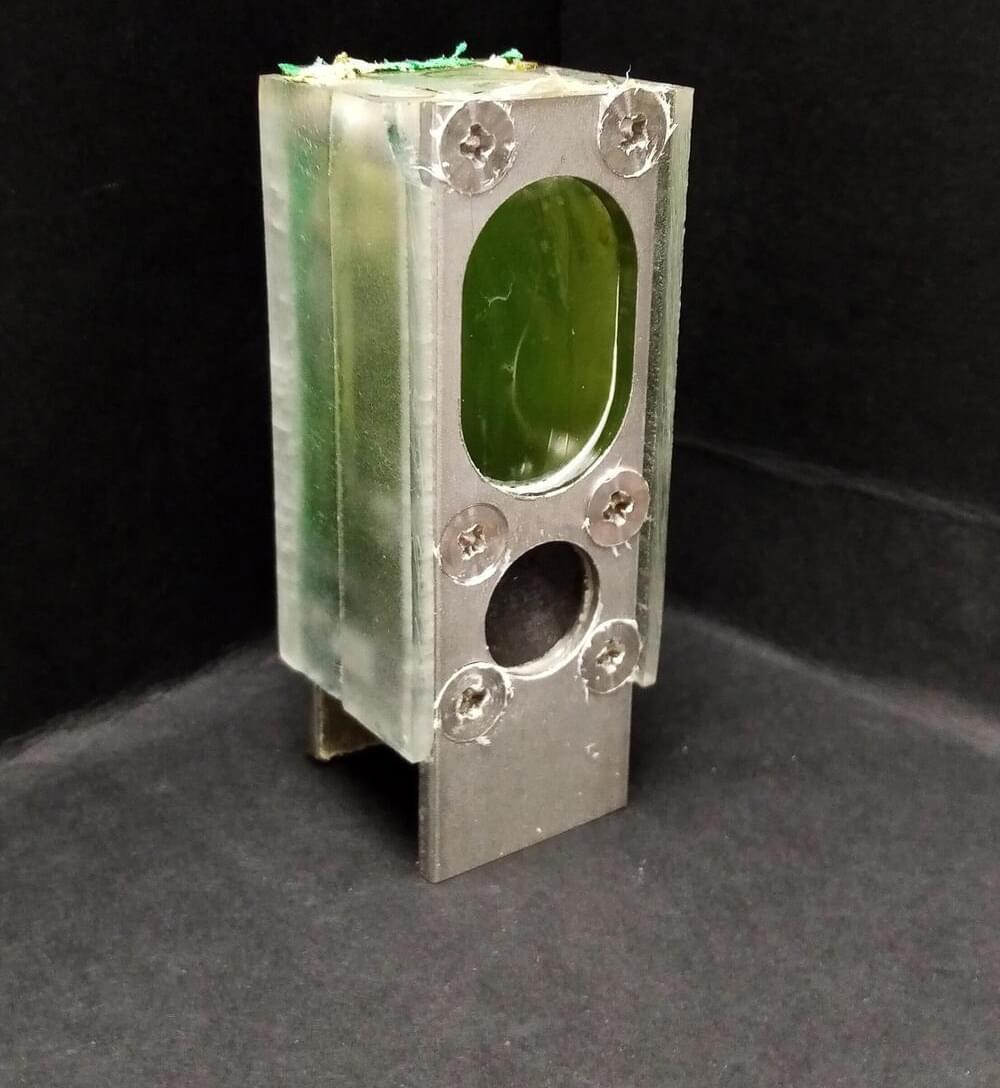Researchers have used a widespread species of blue-green algae to power a microprocessor continuously for a year—and counting—using nothing but ambient light and water. Their system has potential as a reliable and renewable way to power small devices.
The system, comparable in size to an AA battery, contains a type of non-toxic algae called Synechocystis that naturally harvests energy from the sun through photosynthesis. The tiny electrical current this generates then interacts with an aluminum electrode and is used to power a microprocessor.
The system is made of common, inexpensive and largely recyclable materials. This means it could easily be replicated hundreds of thousands of times to power large numbers of small devices as part of the Internet of Things. The researchers say it is likely to be most useful in off-grid situations or remote locations, where small amounts of power can be very beneficial.
